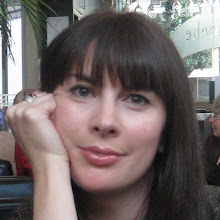This is, I guess,a continuation of my previous post - because what will follow is me stating my subject position and contextualising why I think, feel and respond to the Te Papa story in the way I do.
I'm a historian. A writer. I am do this because the past, and objects from the past, have, and always have had, meaning to me that I cannot rationalise or easily explain. Example: age ten, giggling and excited, I enter Notre Dame. Tourists throng on the cobbles. I look up and see the Rose Window. I am silent. Filled with an unknown feeling of terror, awe, pleasure and sadness. People made this. It had immutable meanings to them. Their effort, their mahi (work), their lives - seem to speak to me out of the past.
Example: Age 23, at a Passover seder, I meet a survivor. I shake his hand and the numbers on his arm fill me with tears, coldness, horror. That tattoo is the signifier, to me, of extreme evil. He wears it as an old friend, something he carries to ensure that the past cannot be forgotten.
Example: It is November, any year since I became an adult. I take out my folder of recipes and begin to make courimbiades, the Greek shortbread that my mother made every year. She is dead. She died eight years ago. I can feel her next to me, with me, as I watch my children shape the biscuits and insert the cloves.
Example: I am in the Auckland War Memorial Museum storage area, locating objects for inclusion in a book I am editing. We want to re-photograph many of the taonga, since the images from the previous edition of the book are very old. I don't wear gloves; neither does the curator. We touch the ancient bone, pounamu, wood with our bare hands so that our wairua can speak to the wairua of the object; the mana of the person who made it. I go into the area reserved for korowai; the curator asks me if I would like to try on a beautiful cloak made by Dame Rangimarie Hetet. Wearing it, I feel open, like a conduit, a doorway to the past.
I'll stop. You get the picture. For me, the past is palpable. And sacred. Things people have made, loved, touched, preserved, discarded - these things are powerful and carry within them the wairua of those who have interacted with them over time.
So - Te Papa. A few facts first: the taonga under contention are items that will never be displayed. The Museum holds them as kaitiaki; they are to be accessed only by the whanau and hapu that gifted them. There will never be a need to exclude members of the public, in a public exhibition context, from viewing them. There is little public understanding of this aspect of a musuem's role - preservation without public display.
The edict restricting access was advice; perhaps badly worded. However, those invited are all museum workers, aware of the context for the advice.
I am a feminist; how could I not be. I abhor cultural relativism. The edict, with the implications that women employees may have to pass on personal information to employers or co-workers, makes me uncomfortable.
But I'm also highly aware that objects do have power; and that we ignore this at our peril. I don't go into the Holocaust Gallery at the Auckland Musuem, despite this being my area of research. The objects there displayed have too much power for me to cope with interacting with them regularly. I go in once a year, on Yom HaShoah; I take my children; I explain.
So the brouhaha has me conflicted; however, I know that there are more things in heaven and earth than are dreamed of in your philosophy, Horatio. So I happily embrace the conflict. Objects have power; the past never leaves us; men and women are equal in their abilities and rights; peoples have differing ways of respecting and understanding the past; New Zealand re-negotiates our understandings of the past continuously.
Subscribe to:
Post Comments (Atom)

Thanks for this, Kate! I share your position, but am finding many of the arguments surrounding this on both sides to be very interesting.
ReplyDeleteA xx
Well said. I think what annoys me about this story is that everyone feels they have to have a clear-cut position, where, as you say, it is more complex than simply "I agree with the Museum's position" or "I do not." As a white male, I'm trying to keep my trap shut because really, what useful perspective do I have on the matter?
ReplyDeleteThis comment has been removed by the author.
ReplyDeleteThis comment has been removed by the author.
ReplyDeleteThis comment has been removed by the author.
ReplyDeleteThis comment has been removed by the author.
ReplyDeleteThis comment has been removed by the author.
ReplyDeleteThis comment has been removed by the author.
ReplyDeleteThis comment has been removed by the author.
ReplyDeleteThis comment has been removed by the author.
ReplyDeleteThis comment has been removed by the author.
ReplyDeleteThis comment has been removed by the author.
ReplyDeleteThis comment has been removed by the author.
ReplyDeleteIt got good posts as well. I will bookmark this site for future viewing. Thanks for sharing.
ReplyDeleteleather jacket
michael fassbender jacket
ReplyDeleteThe first time I find you site I immediately liked this website. That's good to come back here
ferrari biker jacket
ReplyDeletei have some great collection of Ferrari red racing jacketyou can buy by clicking the above link